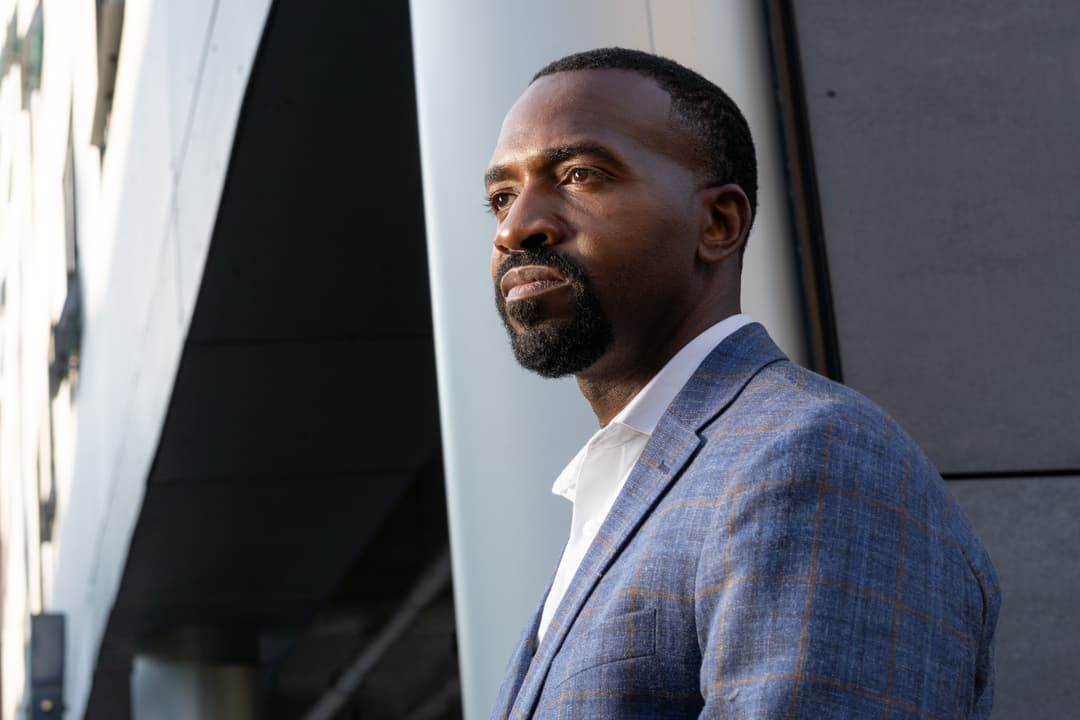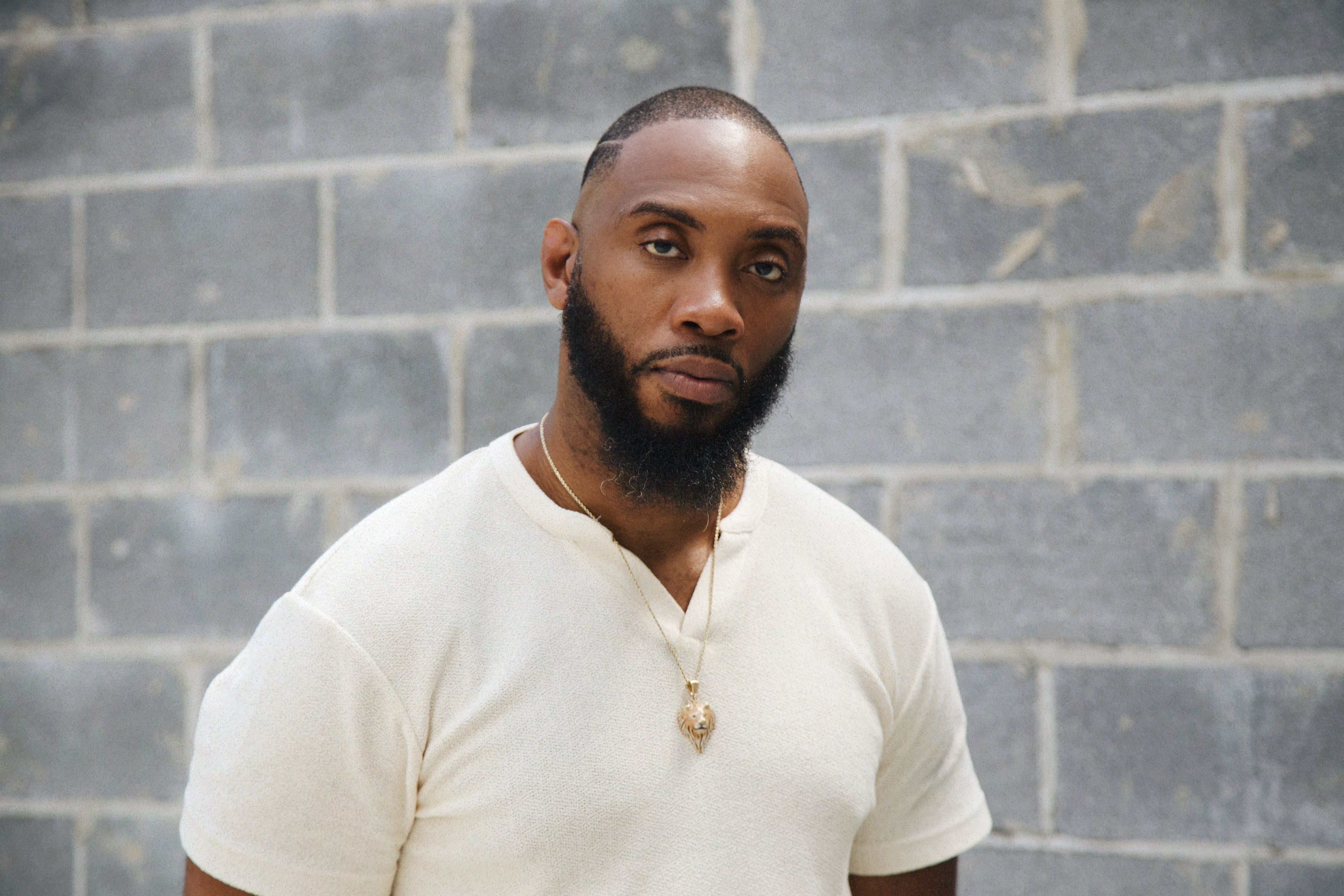
Siree Morris
MCI Property Management and Construction
Siree Morris, Managing Partner at MCI Property Management & Construction, believes real estate development – when done well and with the right intentions – uplifts entire neighborhoods by providing residents with affordable, high-quality housing as a foundation for a dignified life and brighter future.
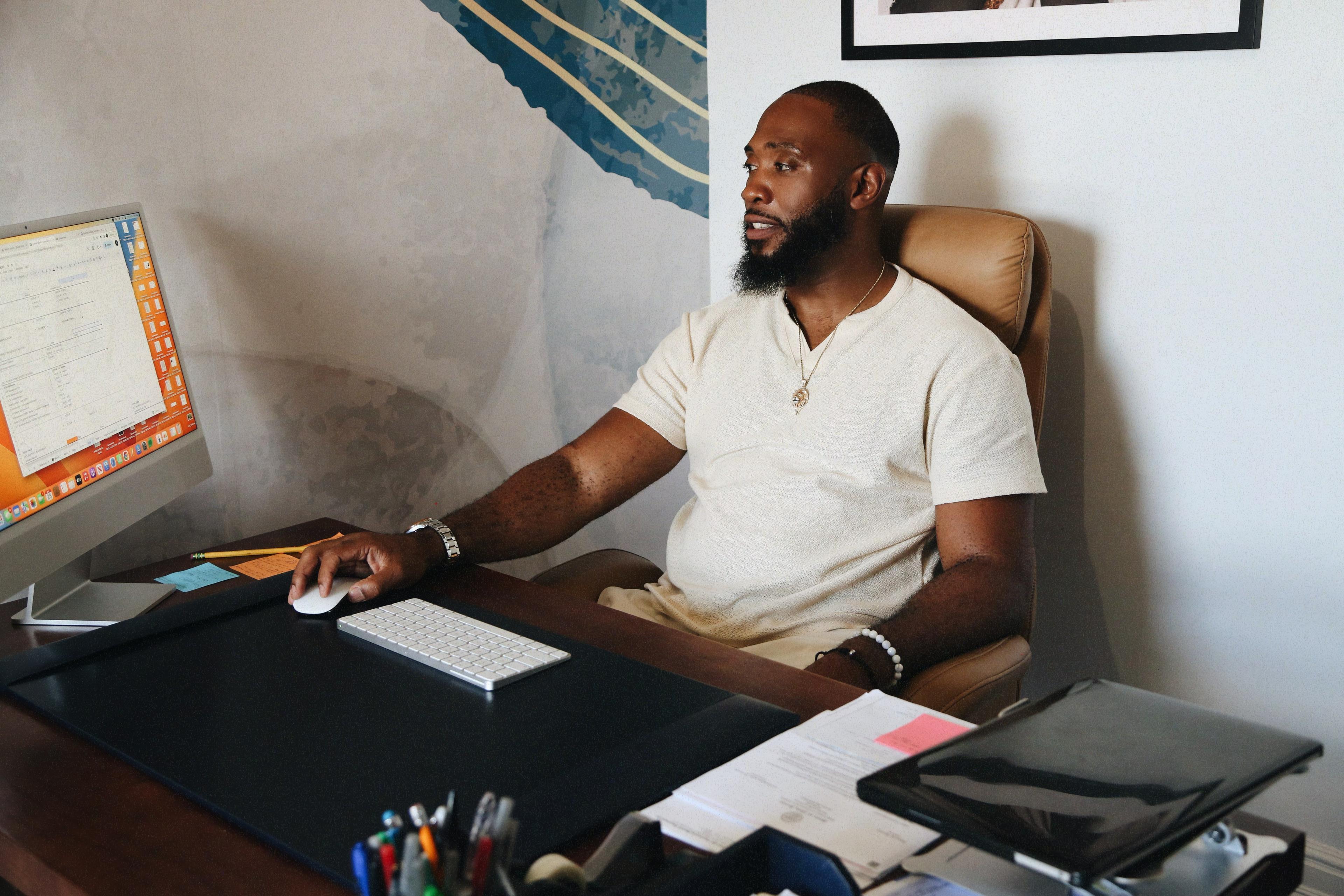
By Eva Sergeeva for Commonplace
Can you briefly introduce yourself and your work and share a bit about your personal background?
My name is Siree Morris and I’m a real estate developer from Newark, New Jersey. I specialize in residential and commercial real estate development, but I'll also work on other cool things for the community. For example, every Christmas, we put on a six-acre interactive light show and a few years ago we put up a drive-in movie theater in Newark, which was actually also the first black-owned drive-in theater in the country. So I’d say that, while I am a developer, I also utilize real estate to create additional impacts in our community outside of just providing jobs and housing.
In terms of my personal background, I was born and raised in northern New Jersey and grew up in Section 8 housing. I was a typical kid growing up in Newark in the 80s and 90s – a lot of fun, but it also came with a lot of ups and downs. I graduated from University High School in Newark and was an All-American basketball player at the time, so I ended up going to Rutgers University in New Brunswick to play ball. However, when I got there I found out I couldn't get cleared by the NCAA because I had an undiagnosed heart condition. Instead, I went to school and graduated in 2005 with a degree in civil engineering.
Can you walk me through the career path that has taken you to where you are today?
After graduating, I went to work for a developer called Edgewood Properties for a guy named Jack Morris – no relation. In all honesty, one of the most important things I took away from this experience was that while Jack had a plane, a yacht, and a full-time 24-hour staff, my boss and I worked out of a basement on his design and development stuff. That’s when the lightbulb clicked in my head and I was like, “I’ve got to reverse this.”
I worked there for almost seven years until I got laid off in 2012. I had the chance then to go work for other firms, but I’d already been working behind the scenes for a while, looking at pro formas and properties on my own. At that moment it was almost like God was talking to me like, “Hey, you're 30 now. If you’re not going to do it now, then when are you going to do it?”, so I decided to give it a shot.
The lay-off was in June of 2012, but by February of 2013, I incorporated my first company, MCI Property Management, followed by the construction company in October of 2013. My thinking was that, since I don't have any family with money, I had to provide services to raise the cash I needed to buy property.
After a few years of renovating houses and managing properties for other people, we took on and finished our first development in 2017, which was a rehab of a multifamily building. Since then, our track record has mostly consisted of similar two-to-four family homes that we gut rehab and fill with people from our community. More recently, we moved into ground-up development for the same type of multifamily housing and have completed five or six of those now, with a few more that we’re currently finishing.
Looking at where I am today, I’m pretty happy with the path I’ve taken and I’m really grateful for how everything has shaken out.
What led you to make the jump into real estate right after college? Was it always something you were always interested in?
I got into real estate because of my two friends, Zahir and Quadire. We hung out as a crew in college, so we were always ripping and running and getting into trouble together. At some point, they started wholesaling houses – which I was actually kind of mad about because they didn’t include me at first – and eventually I was able to learn the basics from them.
At the time, I was already studying civil engineering, but without any specific career in mind; somebody had told me that it would be smart to be an engineer and I went for it. However, between my education, the introduction to wholesaling, and then actually working for a developer after graduating, it sort of all came together for me in the world of real estate. That time period from 2005 to 2007 was when I first got into the industry and those experiences were vital to making me who I am today.
Can you give me an overview of your company today and what you’re working on? What size are the projects that you take on in terms of unit count, deal size, and equity?
We specialize in Section 8 and government housing and we focus on troubled areas where other developers or investors might not really be interested. That’s where we’ve found our niche and our core differentiator; I literally grew up in these areas, so I know how to make these projects work and how to price it to be both affordable and profitable.
Right now, most of the projects in my portfolio are smaller ground-up multifamily buildings, but we’re moving more into larger townhome-style developments with a few currently in planning and approvals. These are generally four-story walk-up stick-frame townhomes with anywhere from 10 to 50 units that will be sold to families along with parking on the ground level.
When we first started our deals were around $400,000 or less. As we started on ground-up developments, that number went up to about $1 million to $2 million, depending on subsidies. Hopefully, by the second quarter of 2024, we’ll have broken ground on our 12-unit development, which will be around $3 million. After that, will be our 24-unit and 16-unit developments, which would be about $6 million and $4 million, respectively.
We typically put up about 10% in equity on our deals. One of our advantages is that our deal sizes aren’t crazy, so it’s not too hard to put up all of the equity and fully control the project. I’ll also have both a construction management stake and a developer fee, as well as subsidies on top of that, so we’re able to pull out a substantial amount when we stabilize and refinance our properties. On one deal, I had $600,000 in and pulled out $1.3 million in the refi, leaving me with around $700,000 after paying down the loan. That all makes us strong financially, gives us a great balance sheet, and helps us perform really well. To give you some idea of that, we try to do an IRR of about 19% to 20% or higher and, without saying too much, we do some really, really good numbers on cash-on-cash.
Now, while I’ll be the first to say that we've been blessed, we also only got here through a lot of trial and error. By seeing for ourselves what does and doesn’t work, we’ve been able to get our preferred deal structure down to a science, which has allowed us to stay small, focused, and in control.
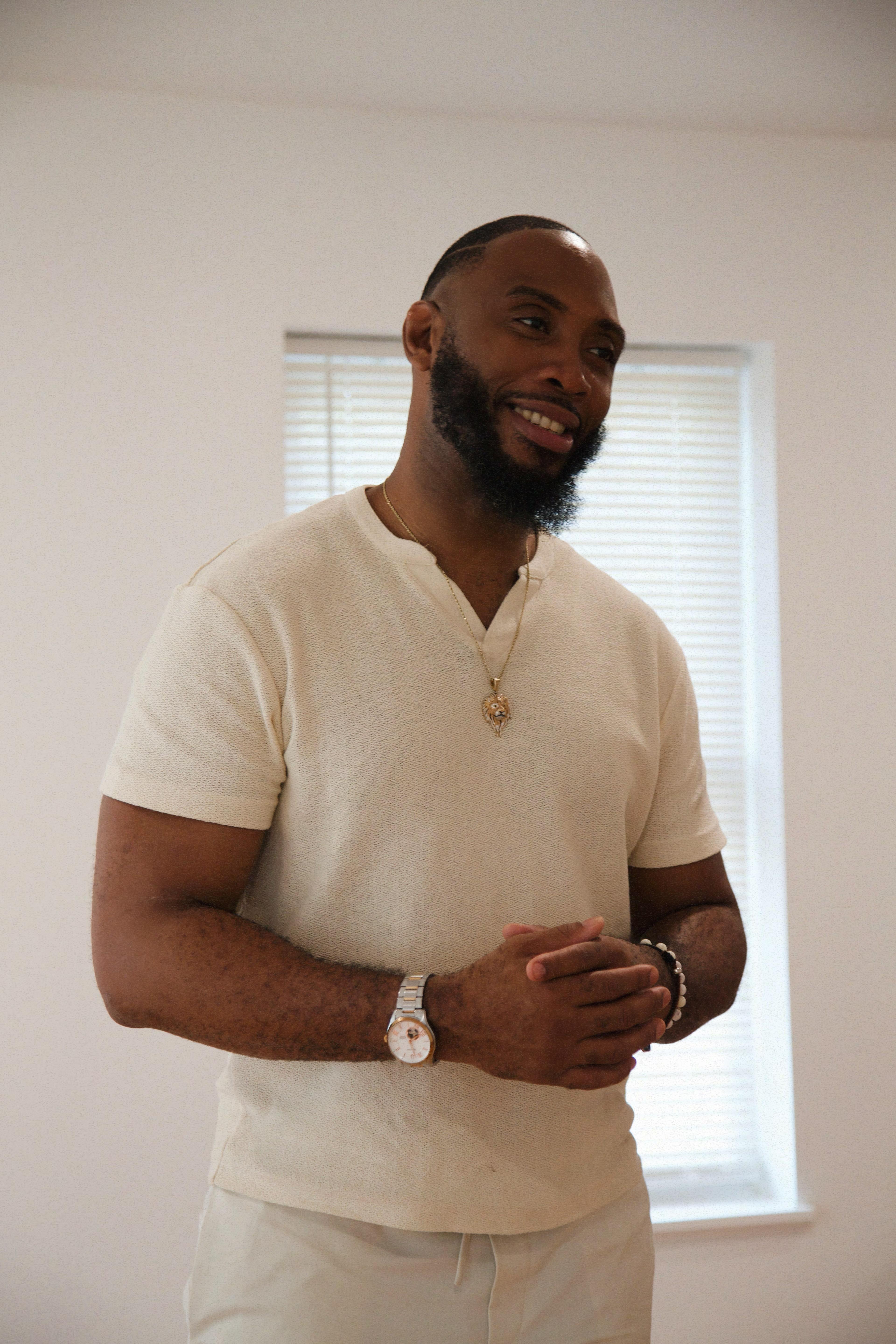
Construction continues on MCI's two-family developments on South 10th Street in Newark
By Eva Sergeeva for Commonplace
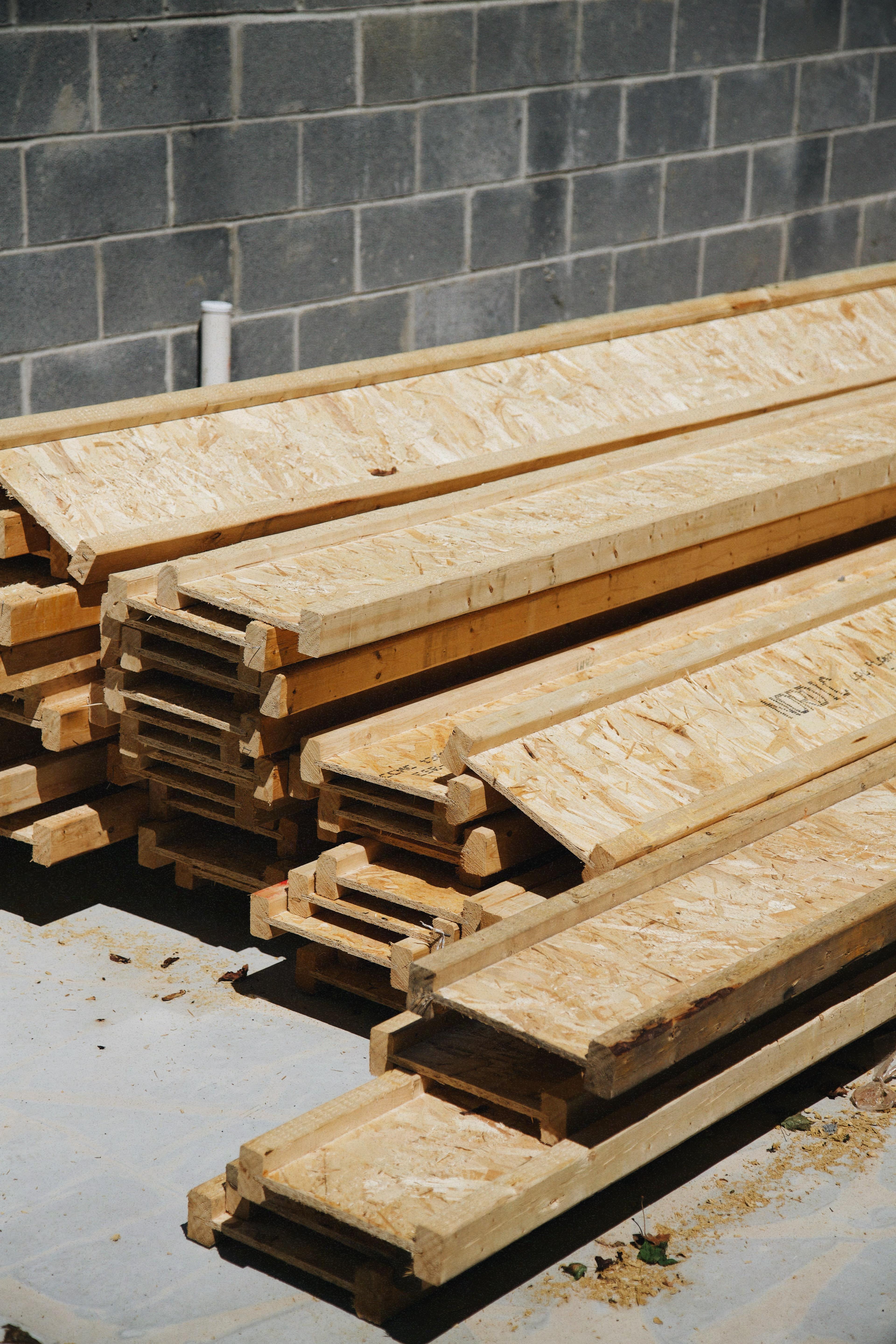
Can you describe your general approach to taking on these developments? Is there one project in particular that exemplifies this approach? If so, which one?
I’m someone who spends a lot of time studying business and history and one consistent theme I’ve noticed is that the best business leaders tend to keep it simple. They understand that people want to know exactly what they’re buying and investors want to know exactly what they’re investing in. So, like them, I try to keep it simple, I try to be consistent, and, more importantly, I try to be boring; when people reach out to do business with me, I want them to know what they're getting every time.
More specifically, we know that we need to cater to families in our markets, so we specialize in one specific product with three bedrooms and two bathrooms. The projects you’ll see today, 192 South 10th Street and 223 South 10th Street, are great examples of this. They’re both ground-up two-family homes, where the first level is a duplex, the second level is a full floor apartment, and each unit has our standard layout. However, while these two projects definitely exemplify our approach, we’re so cookie cutter that I could say the same thing about all of our projects – they’re all just as good an example as any other project in our portfolio.
The benefit is that this allows us to focus on simply mastering and perfecting our system. We do the same thing every time, so we just need to be great at it; that’s why all of our teams are structured to maximize our efficiency across project management, construction, planning, and everything else. By working like a well-oiled machine, we’re able to get economies of scale, which is the most important thing for growing our business.
Does this approach apply to your geographic coverage as well? What areas do you operate in?
When you’re developing, you really want to focus on and maximize your sphere of influence. For me, that’s Essex County in New Jersey, particularly in North Irvington, East Orange, and their surrounding areas. We have some offers out now for properties in other counties as well, but generally Essex is my go-to because I can maximize my control over my projects and their value.
One thing about development though is that you need to have a balanced portfolio. All my money is in my developments, but that's a longer timeline, so if I don't get things built on time or there are other delays, my cash flow will be affected. That’s why we’re balancing out our portfolio by buying stabilized buildings, 15 units and up, in different markets around the state. Besides that, we’re also looking heavily into Atlanta – the market down there is just kind of through the roof. However, instead of the heart of Atlanta, we’re looking more on the outskirts for value-add plays. For this side of the portfolio, I’m mainly considering the unit count and things like cash flow and expenses; geography is less important because it’s more about how much money I can return to our investors.
How are you structuring your deals? Are there any specific challenges you face in raising financing and capital for your projects?
My partner and I are the general partners on our deals and, as I mentioned, we typically put up all or most of the equity in the project.
In terms of debt, we always utilize CDFIs to fund our deals – it’s our bread and butter. They’re great for us because they specifically focus on areas that other traditional lenders are not comfortable with and that's exactly where we work. We’ve done a lot of deals with New Jersey Community Capital, we also have some deals right now with the Reinvestment Fund, based in Philadelphia, and we're starting to look at working with Momentous Capital.
That’s worked so far, but mainly because we’ve been keeping our deal sizes under around $2 million. But anytime you're dealing with development, you need cash to pay people for the work and you need assets to keep the bank happy and confident they’ll get their money back if they need to sue you. The challenge is that as we scale up, we’re going to start to have problems with both of those pieces. We have seven projects in our pipeline now – all in planning – and we have to put in all of our available cash flow, the company’s savings, as well as our personal cash to get them done. I also need assets of $10 million to $15 million to get financing, so I need to think about who I can ask to let me utilize their balance sheet. I can try without that, but the bank will ask me to put in an extra million or $2 million for each project – that’s a lot of money when you have seven of them.
What I see in our future is that we’ll soon run into that equity problem, which is also the most difficult thing. We’ve only been relying on family and friends up until now and I know that I need to set up a stable of relationships to get to the next level. However, raising equity is particularly hard for us because I’m specifically looking for socially responsible equity investors. I know the industry standard, especially in New York, is to give away a lot of ownership and control, but that’s not for me. To grow my business, I need somebody who will invest, not only to make money and impact, but also to put their general partner in a position to do more and get to those bigger check sizes. Now, I’m a businessman, so I’m willing to negotiate, but in terms of the mindset I’m going to set that tone very early on.
"In terms of debt, we always utilize CDFIs to fund our deals – it’s our bread and butter. They’re great for us because they specifically focus on areas that other traditional lenders are not comfortable with and that's exactly where we work."
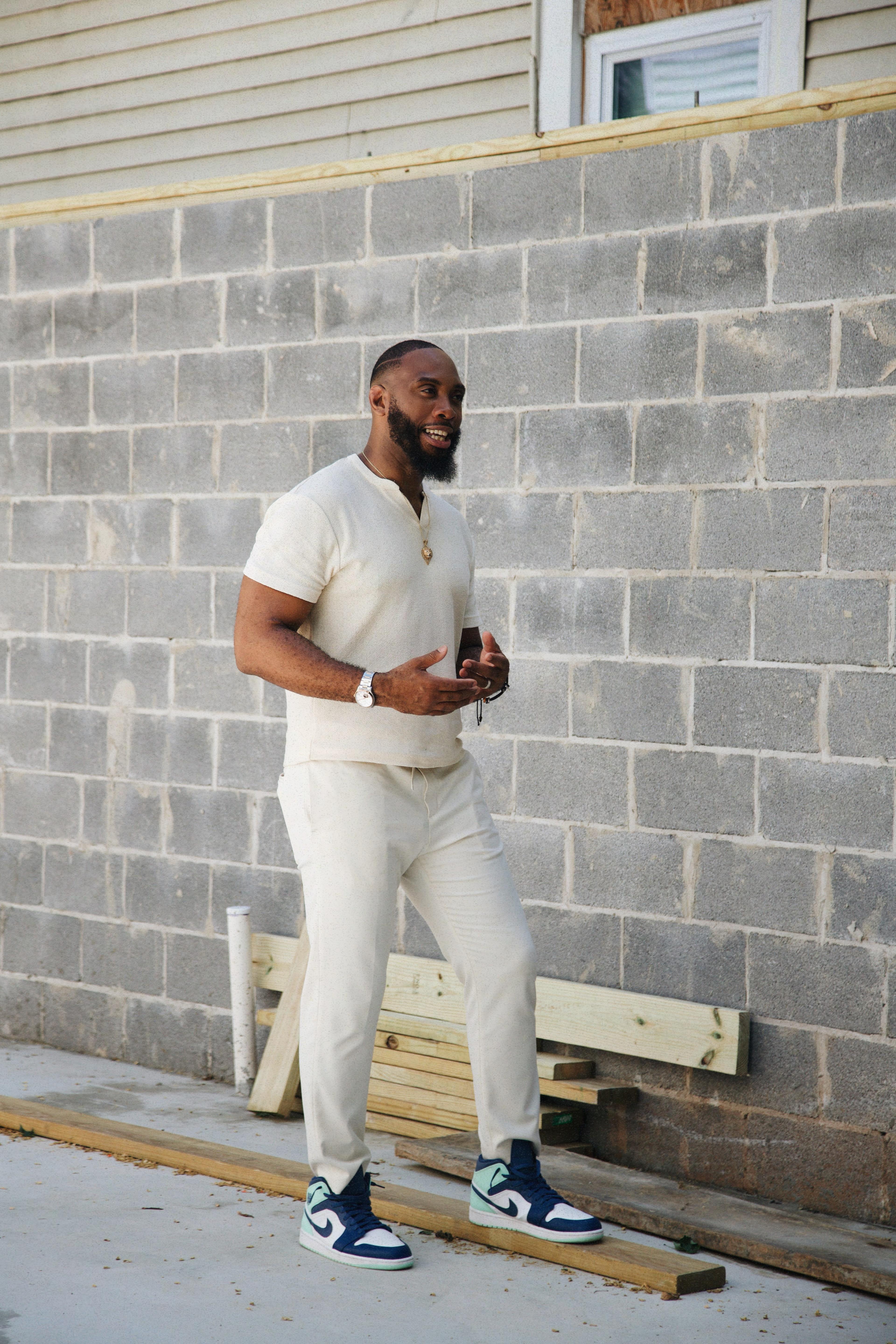
By Eva Sergeeva for Commonplace
Besides generating great returns, which it seems that you are pretty successfully doing, are there other goals or impacts that you actively try to achieve through your projects?
The areas I’m in – just to keep it real here – are high crime areas, high drug areas. They’re troubled, you know? But I grew up in these areas; I’m literally doing a development right now on Astor Street, which is the block I grew up on. So, despite all that, my projects are all near and dear to me and making an impact can’t really be separated from the work. It’s not just part of my mission, it is my mission.
I think about that impact on multiple levels. First, I consider who in the community can do some type of skilled labor and I like to pull those people out and give them an opportunity to be a laborer, a journeyman, or something else like that on a project. Sometimes skilled labor can be hard to come by, but then the question just becomes who in the community can do general labor and is willing to work hard?
The second part is the development itself. On each project, when the building's finished, I’ll have taken a blighted or vacant piece of property and made it pretty – and if there’s one thing I know the people in my community love, it’s something that looks nice, is livable, and meets their needs. I make sure to fill our spaces with people and families from the area because it gives them somewhere to be proud of and value. That’s important because, while it’s great that we’re putting the investment there and giving people jobs, filling the property with local people actually uplifts the area and improves morale. And to be clear, I don’t want people to think that I’m just building a little here and there. We try to get every building, every lot, every dilapidated property into our pipeline, so that we can build it, improve the local environment, and give the people in our community that sense of pride.
Finally, the third part is all the different ways that we partner with the government. For example, we do Section 8, we work with the New Jersey Department of Community Affairs (DCA), the Tenant-Based Rental Assistance Program (TBRA), and really any government agency or program providing all types of rental assistance. We want to make sure that we’re putting people who can really use the help into our spaces – now, I’m not saying that they’re out on the street, but typically they’ll at least be in transition. In addition to that, we like to make our vacant spaces available to local churches and nonprofits because it helps more people in the community access social services, like drug rehab or job placement.
Overall, what I’d say is that we’re not just trying to create housing with our developments. It’s important for our venues and buildings to drive community growth and development.
"One thing I don't like about real estate is that the people with the money generally go for the prettiest things in the best areas, where everything is great and grandiose. They're chasing that maximum return on investment or they’re set on that 8%, 9%, or 10% preferred – we don’t work like that."
You mentioned that you’re already starting to build a stable of investor relationships to prepare for your future equity needs. Given what you just shared about your mission and goals, what should investors or other potential partners understand before looking to work with you?
I think the key is to understand the mission that comes with the work we’re doing, or to at least have the bandwidth and open-mindedness to learn about it. One thing I don't like about traditional real estate is that the people with the money generally go for the prettiest things in the best areas, where everything is great and grandiose. They're chasing that maximum return on investment or they’re set on that 8%, 9%, or 10% preferred – we don’t work like that. Our partners understand that the work we’re doing is important and that there aren’t many people in our community who can do it like we do. And, to bring it back to being efficient and boring, they also understand that we’re trying to create a model for Camden, Philly, Baltimore, and all these difficult areas around the country. That’s our long-term vision and our partners have to be on board with that.
Besides that, I’m looking for partners who are just generally a good fit for the way we work. It’s important for partners to look closely at our financials and call me out if something doesn’t look right. I like accountability and I appreciate when a deal doesn't work because that feedback only sharpens my pencil. That said, they also need to understand that we need to leave some equity for others to actually improve the conditions in our community and other communities like it across America. It’s not just about returns; communities need resources that they can disburse as they see fit.
And, finally, the last thing I’m looking for is a heart and a conscience, as well as the desire to do good and want to help. I think that’s almost like a prerequisite to the other things I’ve mentioned; it’s at the center of our mission and it’s what motivates us to do what we do.
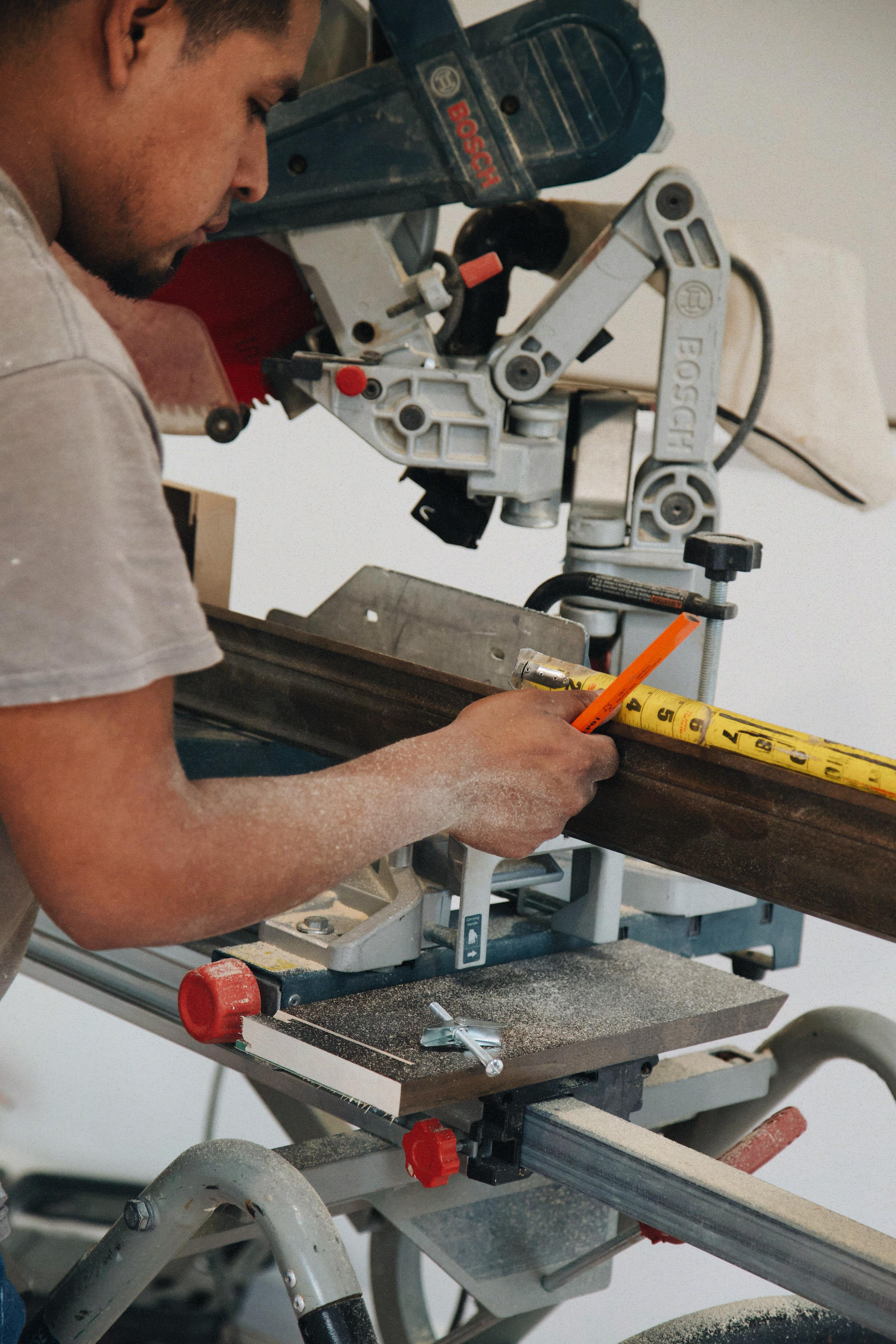
MCI makes it a priority to hire locally and create economic opportunities for the community
By Eva Sergeeva for Commonplace
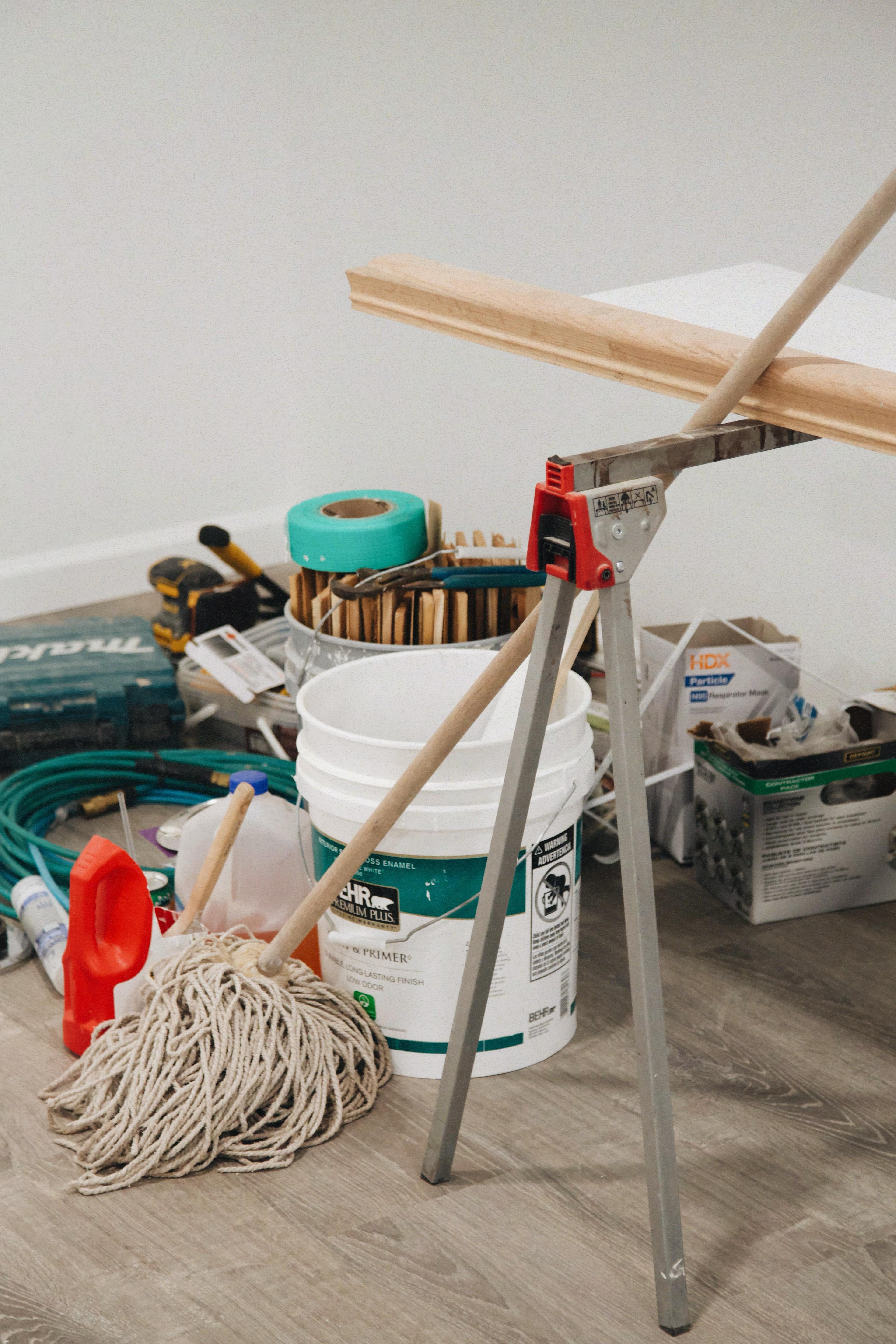
"There has to be something far greater than dollars and cents; you can always make money, but the important question is what type of impact you have in making it."
What drives you and motivates you to take on this work?
I won’t lie, first and foremost, I don't want to be poor again. At the beginning, I mostly saw real estate as a way to provide a solid financial foundation for my family. However, as I’ve gotten older I’ve come to understand that money can drive you at the start, but it’s not going to get you over the finish line.
For me, the question I’m trying to answer every day is, “Can I take in a family and help them out?” I get these types of calls all the time. It might be a victim of domestic violence, a single mother, or maybe a family whose house burned down. Whatever the case may be, I’ll either get them a place if I have any availability, or I’ll put them in touch with one of our partners to see if they can find them something. Being able to do that for people really motivates me and gets me up in the morning.

Confidence is key
By Eva Sergeeva for Commonplace
What gives you the confidence to take on this mission and work in these areas that other developers might not even consider?
I’m an entrepreneur – I shoot shots, you know? You can’t be afraid of going for it.
Admittedly, when I started out, I didn’t quite have that fearlessness yet. However, that changed when one day I mentioned to one of my friends that I didn’t want to lose and go back to being poor. My friend looked straight at me and asked, “Well, what if you were to be poor? Could you do it all again?”
I thought to myself a bit, and answered, “Yeah, probably.”
That conversation has really stuck with me and since that day, it’s just like, who cares? I’ve already lived the worst case scenario. And, even if things get rough, I figure that I’m smart, I’m pragmatic, and I’m determined, so I’ll make it work regardless.
However, I will say that there’s a lot of experience behind that confidence, too. I’ve been in the game a while. I have a system and a track record. And I’m blessed to work in a market I’m very familiar with, including its local politics and subsidy game.
"It’s like when I used to play ball; for every shot I made, I missed 150 in practice. Same thing here – there’s no magical elixir, no secret sauce. You just gotta keep going out there and doing what you can."
What is the biggest hurdle you face in executing your mission and bringing your vision to life?
To be completely honest, the hardest part has been working with government entities through planning and approvals and the subsidy process. The good thing is that they have the money you need and they understand and support the vision; they’re your advocates and they’re great people who truly care and want to serve the community. But the flip side is that it takes a long time – it has to go through the system and it has to be voted on before it can be executed. Depending on the project, it could take two years, maybe even three or four, before you finally get through everything. Then, after all of that, there’s compliance.
The developer’s biggest enemy, even more so than money, is time, so I’m sure everyone would give the same answer or something close to it. It’s a known issue, but, unfortunately, the only thing we can really do is mitigate that risk and have certain conversations earlier. That way, I have a few extra months if I need them and there’s a chance that if I grind a little faster, I’ll get to enjoy a few months of interest-only payments on a fully leased building too.
What are your thoughts about the tension between financial returns and social impact?
I’ve actually approached this as though they’re mutually exclusive, but mostly because you have to speak to people in their language. The two seem incompatible at first, but when I step back and look at the big picture, I can see that I’m creating a bridge between the two simply by giving everybody what they need.
For example, if I’m talking to a bank and I'm trying to get them to increase my LTV, I'm talking specifically about the numbers because they have to work for there to be a deal, right? I might have my mission, but that bank has board members and shareholders and that’s what they’re concerned about. On the social impact side, if I’m trying to get certain subsidies from a municipality, I’m talking about the finished product in terms of what it’ll do for the community and how it’ll improve people’s quality of life. In both scenarios, it’s the same project; I’m just presenting its different strengths.
The way I see it, navigating that tension is a question of being a people person and understanding the best way to communicate value.
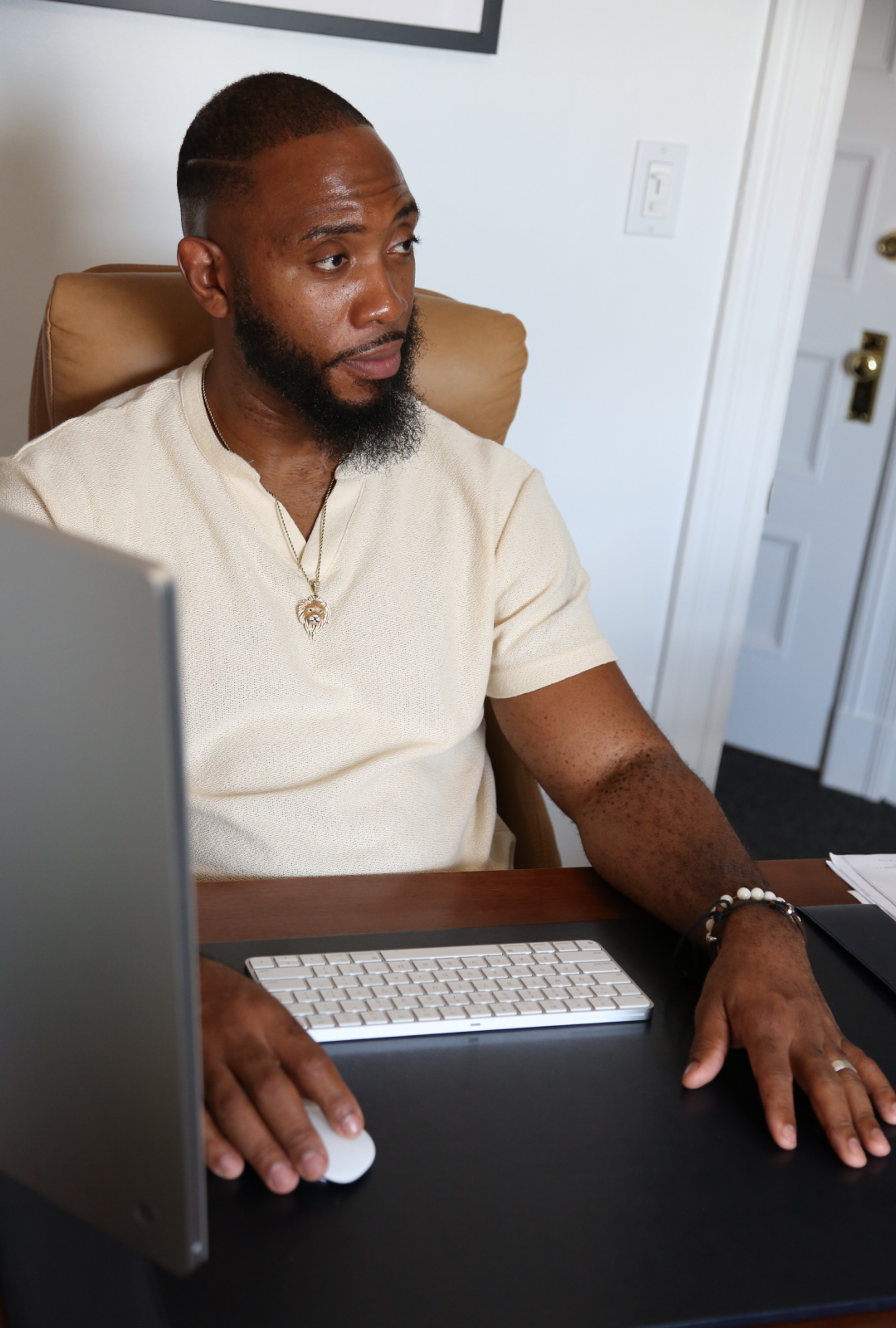
By Eva Sergeeva for Commonplace
There’s been so much written and said about the difficulties Black and Brown developers in particular face when it comes to accessing the capital they need to scale. You’ve already mentioned that this issue is one of the biggest problems you see in your future. Could you elaborate and share your thoughts on this topic?
Absolutely. The number one issue in real estate is access to capital, but more specifically it’s what you have to give up to get it.
I know I can always find a hard money lender, but I also know that if they came into my deal, then I would basically be working for them. That right there is the problem, especially because you’ll also have to give up half of your share as a GP just to have somebody guarantee the project and share their balance sheet with you later on. The way it’s set up, they’re going to get you on the front-end with the equity or they’re going to get you on the back-end with the debt, but either way they’re taking 90% of the job. You’ll get the capital, but not in a way that you can actually benefit from it and make some money for yourself.
Now, I understand the mathematics behind that and I get it, but just because that’s how things are today doesn’t mean it’s the only way. How much has changed in society over the last 50 to 60 years, right? It’s the financial system and how we do business that has fallen behind.
We need to find a better balance. For starters, every state has teachers, firefighters, cops, and city employees paying all this money into their pensions, only for the funds to invest it in stocks or in other areas of the country with a “better” or “safer” return. Basically, we have a system where states are sucking the money out of our communities and paying fund managers billions in fees to send it somewhere else. Meanwhile, our neighborhoods are distressed and our small businesses struggle to find capital. That, to me, is criminal – the ideology in itself is criminal.
Any time I get to speak with government officials, I have to talk this talk because this has to change. We know the money is there – they’re literally taking it every week from our paychecks – so what we need is representation when it comes to deciding where the money goes. That needs to come alongside new investment vehicles that allow local developers, small businesses, action committees – people who are actually making places livable and habitable – to effectively work with fund managers to do that.
You can probably tell that this really grinds my gears. I could go on for hours about this, so I’ll just leave it at that for now.
"Now, I understand the mathematics behind that and I get it, but just because that’s how things are today doesn’t mean it’s the only way. How much has changed in society over the last 50 to 60 years, right? It’s the financial system and how we do business that has fallen behind."
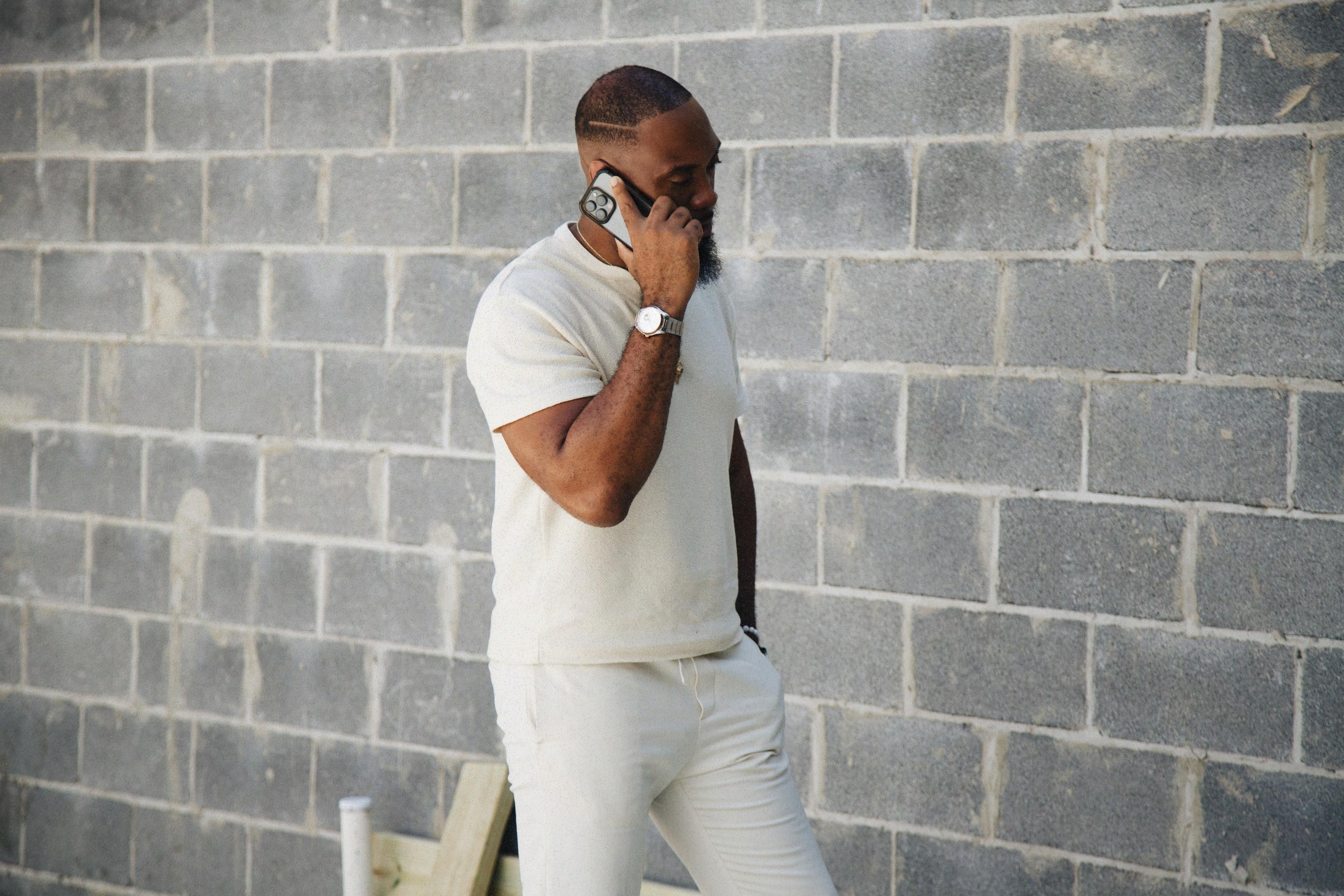
By Eva Sergeeva for Commonplace
As you reflect on your career and company, what are some things you wish you knew when you first started?
Honestly, there’s nothing that immediately comes to mind; I’m good with where I’m at now and I’m comfortable with that. Culturally, I think we tend to always be looking for perfection, so we’re always thinking about what we could have done better or what we wish we knew before. But looking back, I either knew what I needed to know at the time, or if I didn’t, then it put me on the path to search for answers. At the start, there were a ton of things I didn’t know about – property management, subsidies, equity, just to name a few – but learning about them is what got me out of bed every day and allowed me to grow into the person I am today.
Actually, wait. There is one thing: I wish I had picked up therapy earlier. A lot of the reflections I just shared were a result of that, so I take that back. For me, personally, the answer is therapy.
What legacy do you hope to leave?
I would say the main thing is a legacy of fearlessness because I think fear is what most hinders and holds my community back. Ever since we were brought over here, it’s been under the pretense of do or die – the only difference is that now we’re being killed financially, instead of physically. For decades we were red-lined, kept in areas where our properties were devalued, and had our capital sent away to build up other places; the end result is that now it’s almost a miracle when someone like me is able to find a way out.
However, I want people to understand that it doesn’t take a miracle. They can do ten times better than me – they just can’t let fear stop them. Now, I’m not saying that it’s going to be easy. That fear will always be there; I personally struggled for years to the point where I couldn’t sleep at night and needed therapy, right? But no matter what it is – real estate, finance, politics, setting up a bodega, anything else – do not let fear slow you down and stop you.
I think that mindset is paramount for my personal growth, as well as for the growth of my community, and I would really love for my work to represent that and create hope for those who come after me.
"For decades we were red-lined, kept in areas where our properties were devalued… the end result is that now it’s almost a miracle when someone like me is able to find a way out. However, I want people to understand that it doesn’t take a miracle. They can do ten times better than me – they just can’t let fear stop them."
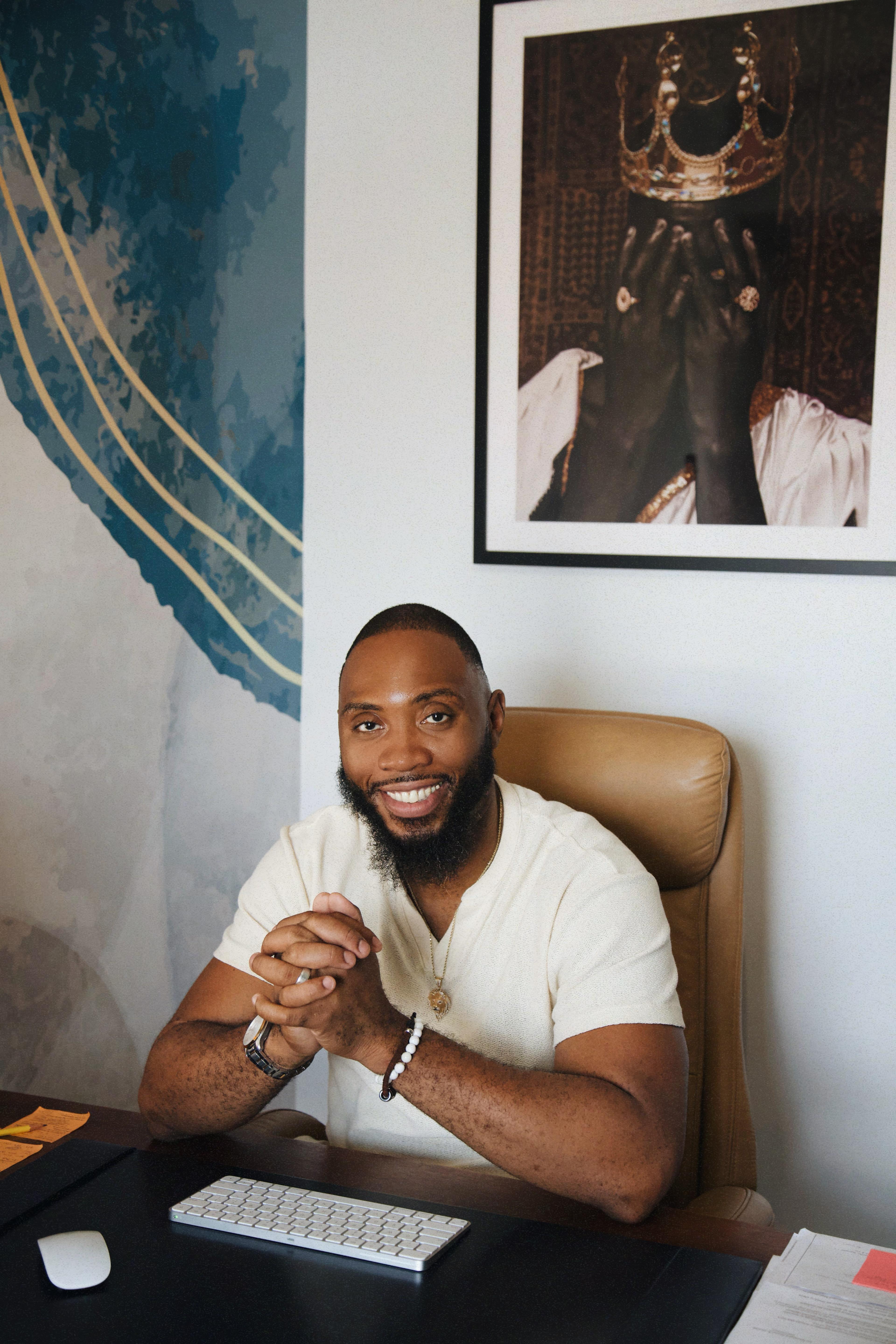
By Eva Sergeeva for Commonplace
Who has inspired you over the course of your career? Who has helped you along the way?
This is pretty cliche, but I would definitely say my wife. I remember that in my wedding vows, I called her my consigliere and I meant it – you have to get through her to get to me. We’ve been together now for 18 years and over those years, I’ve been kicked out of partnerships, bought out of properties, and found myself in lots of other difficult situations. And through all that, she’s been in my corner every step of the way.
And while I say that I’m an entrepreneur, my wife is also an entrepreneur – a film director, more specifically – and she takes on even bigger risks than I do! When I was laid off in 2012, it was a tough spot. I had just had my oldest son, Siree Jr., about a year and a half ago and my wife was a substitute teacher at the time. She was actually the one who said, “Listen, let’s both take this opportunity to start our businesses. We’ll move back to my mother’s house and live there for however long we need to.” So we did and we got started – by which I mean she got started and I was eventually inspired by her example.
I’m a planner, an engineer, by nature and training. So while I was stuck in the house hyper-analyzing, my wife was immediately out in the community pursuing her dreams. She’s a real go-getter – we joke that she’s always the first one off the porch – and by 2014, she had already premiered her first film with over 1,000 people in attendance and made the local news. Seeing her work toward and achieve her goals is what convinced me that I could accomplish what I set out to do too. So, I have to credit my wife with my success and I mean that in a real way.
Of course, that support goes both ways and that’s our superpower: we come as a team and we work as a unit. The drive-in theater, for example, was actually her business venture, but I helped her and we made it work together. Our Christmas light shows are something we take on together as a family every year too.
All that to say, if I were to think of my life as a house, then my family would be the foundation. The rest of the building – the tiling, siding, roofing, all of that – is where I get to go out, explore life, and pursue my dreams, but none of that would be possible without my foundation and my wife at the heart of it. I could not be where I am or who I am today without her.

Siree Morris
MCI Property Management and Construction
